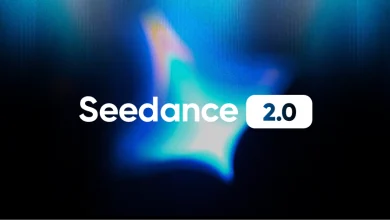Every company is racing to innovate with AI, but few can prove that their advancements are responsible.
According to a global IBM study, 81% of executives and 96% of their teams are already using AI to a moderate or significant extent. Yet fewer than 25% have fully implemented and continuously review tools to manage risks such as bias, transparency, and security.
The widening disconnect is precisely why governance must move from the compliance checklist to the leadership agenda. Boards are asking new questions: Who owns AI risk? What are our controls? Can we prove them?
At Poppulo, our journey to ISO 42001 certification allowed us to explore these questions firsthand. The lessons we gained along the way may help other organizations embed responsible innovation into their own operations.
ISO 42001 – What It Is and Why It Matters
ISO/IEC 42001 is the world’s first international standard for Artificial Intelligence Management Systems (AIMS), defining what responsible AI looks like in practice. Just as ISO 27001 set the benchmark for information security, ISO 42001 now sets the benchmark for trust in AI.
In my view, this is as much of a leadership milestone as a technical one. ISO 42001 signals to boards, investors, and regulators that an organization treats AI accountability as a strategic asset.
At a time when trust is the ultimate differentiator, ISO 42001 represents credibility, readiness, and long-term resilience.
Translating Governance Theory into Operational Reality
As the first in our industry to achieve ISO 42001 certification, Poppulo learned that responsible AI isn’t just about meeting a standard; it’s about shaping a culture of trust and accountability.
From that experience, four lessons stand out for enterprises ready to scale AI with integrity.
- Build on Strong Foundations
Responsible AI doesn’t begin in a vacuum. Many enterprises already operate under frameworks like ISO 27001 or SOC 2. Extending these systems to address AI-specific risks—bias, model drift, explainability—creates continuity and accelerates adoption.
At Poppulo, we took this approach by using our ISO 27001 framework as the foundation for ISO 42001. Building on familiar systems reduced the workload and made the transition feel like a natural evolution rather than a disruptive overhaul.
Takeaway: Strengthen what works before reinventing the wheel. Governance scales faster when it builds on a trusted foundation.
- Make Governance Cross-Functional
AI governance succeeds when it’s co-owned across disciplines and tied to measurable business outcomes. Organizations should engage engineering, legal, product, HR, and customer success teams in co-designing governance systems that are both robust and practical.
At Poppulo, we established an AI Governance Council to ensure every department had visibility and a voice in shaping how AI is managed.
Takeaway: Make governance a team sport. Embed it across every discipline, not isolated in compliance.
- Focus on Building Evidence
Transparency, as a company value, is only meaningful when put into practice. Leading organizations use data and documentation to make governance visible, measurable, and actionable. These tools reinforce responsible behavior and satisfy auditors in the process.
At Poppulo, we implemented automated monitoring systems and live dashboards to track AI model performance and use case reviews. Regular governance reviews ensured continuous learning and improvement. These practices turned transparency into an operating norm.
Takeaway: Treat evidence as insight and proof that quality governance is enabling innovation.
- Design for Continuous Validation
Effective governance systems evolve alongside the technologies they support. Audit readiness should be the natural result of daily operations, not a last-minute scramble.
During our ISO 42001 certification, auditors found that governance, risk management, and accountability practices were already embedded in how we work.
Takeaway: Build systems that ensure compliance is a reflection of culture rather than an afterthought.
Governance as an Accelerator
The next era of AI leadership will be defined by stewardship. The organizations that win will be those that scale innovation responsibly, proving that their systems are not only powerful but principled.
Standards such as ISO 42001 provide necessary safeguards to move faster with confidence. For business leaders, the challenge now is to weave governance into the innovation narrative. We must show how trust, transparency, and accountability fuel transformation.
Raising the Standard
Achieving ISO 42001 is not the finish line. It’s the foundation for a culture of continuous improvement. For Poppulo, the certification process affirmed the importance of transparency, collaboration, and shared accountability in how we operate.
The future of leadership will belong to those who balance ambition with responsibility. As AI continues to evolve, governance will be the differentiator between innovation that lasts and innovation that fails.
About the Author
Ruth Fornell is the CEO of Poppulo, a global leader in employee communications and digital signage software. She believes engaged employees “figure it out,” but message overload and misalignment often get in the way. Under her leadership, Poppulo helps organizations cut through complexity to reach, inform, and engage their people with clarity. A proven SaaS and software leader, Ruth has driven global growth by aligning systems, teams, and messaging to turn technology into an enabler—not a source of noise.





